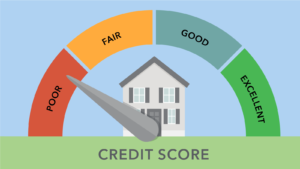If you have awful credit, you can get a loan by exploring bad credit lenders. These lenders specialize in offering loans to individuals with poor credit scores.
Getting a loan with awful credit may be challenging, but it’s not impossible. There are options available to help you access the funds you need, such as seeking out bad credit lenders who are willing to work with your financial situation.
By understanding the available loan options and taking proactive steps to improve your credit, you can increase your chances of securing a loan despite your poor credit history. This guide will explore the various avenues you can pursue to obtain a loan with awful credit, empowering you to make informed decisions about your financial future.

Credit: www.sacbee.com
The Reality Of Bad Credit
Discover the reality of bad credit and learn how to secure a loan despite a poor credit history. Explore effective strategies to obtain financing even with less-than-ideal credit scores.
Impact On Borrowing
Bad credit can have a significant impact on your ability to borrow money. Lenders use credit scores to assess the risk of lending to individuals, and a low credit score indicates a higher risk. With bad credit, you may face several challenges when trying to obtain a loan:
- Higher interest rates: Lenders may offer loans with higher interest rates to compensate for the increased risk.
- Limited loan options: Your choices for loans may be limited, and you might not qualify for certain types of loans.
- Stricter requirements: Lenders may have stricter eligibility criteria for borrowers with bad credit, making it harder to qualify.
- Smaller loan amounts: If you are approved for a loan, the lender may offer a smaller loan amount compared to someone with good credit.
It’s important to understand the impact bad credit can have on your borrowing options so you can make informed decisions when seeking a loan.
Common Misconceptions
When it comes to bad credit, there are several common misconceptions that can hinder your understanding of the situation. Let’s debunk some of these misconceptions:
- Misconception: Bad credit means no loans. While it may be more challenging to secure a loan with bad credit, it doesn’t mean you have no options. There are lenders who specialize in providing loans to individuals with bad credit.
- Misconception: Applying for multiple loans will improve your chances. This is not true. Each time you apply for a loan, it results in a hard inquiry on your credit report, which can further lower your credit score. It’s essential to be strategic and selective in your loan applications.
- Misconception: Paying off debts will immediately improve your credit score. While paying off debts is important, it may take time to see a significant improvement in your credit score. Building good credit habits consistently over time is the key to improving your creditworthiness.
By dispelling these common misconceptions, you can have a clearer understanding of the realities surrounding bad credit and make informed decisions about your financial future.

Credit: edcollaborative.com
Initial Steps Before Applying
When looking to secure a loan with a less-than-ideal credit score, taking initial steps before applying is crucial. These steps can help you understand where you stand financially and improve your chances of approval. By focusing on checking your credit score and correcting any errors on your report, you can set yourself up for a more successful loan application.
Checking Your Credit Score
Checking your credit score is the first step in understanding your financial standing. You can access your credit report for free from various online platforms. By doing this, you can identify any negative factors that may be impacting your score and take proactive measures to address them.
Correcting Errors On Your Report
Correcting errors on your report is essential for ensuring that your credit score accurately reflects your financial history. If you notice any inaccuracies, such as incorrect account details or unauthorized inquiries, you should dispute them with the credit bureau to have them rectified.
Choosing The Right Type Of Loan
When facing awful credit, finding the right type of loan can be challenging. However, with careful research and understanding of your options, it is possible to secure a loan that meets your needs despite your credit score. Focus on exploring alternative lenders, such as online lenders or credit unions, who may be more willing to work with individuals with poor credit.
Additionally, consider options such as secured loans or co-signed loans to increase your chances of approval. By taking these steps, you can find a loan that fits your situation and helps you rebuild your credit.
If you have awful credit, getting a loan can be difficult. However, it’s not impossible. The first step is to choose the right type of loan. There are different types of loans available, and each has its own pros and cons. Here are some of the most common types of loans you can consider.Secured Vs. Unsecured Loans
Secured loans require collateral, such as a car or a house. If you default on the loan, the lender can seize the collateral. These loans are less risky for the lender, which means they may offer lower interest rates and better terms. However, if you don’t have collateral or you’re not willing to risk it, you can consider unsecured loans. These loans don’t require collateral, but they may have higher interest rates and stricter requirements.Payday Loans: Pros And Cons
Payday loans are short-term loans that are usually due on your next payday. They are easy to get, even with bad credit, but they come with high interest rates and fees. If you can’t pay back the loan on time, the fees can add up quickly, making it even harder to pay off the loan. However, if you need cash quickly and you’re confident you can pay it back on time, a payday loan can be a viable option. Overall, choosing the right type of loan is crucial when you have awful credit. You need to weigh the pros and cons of each option and choose the one that fits your needs and your ability to repay. Remember to read the terms and conditions carefully and only borrow what you can afford to repay.
Credit: www.bankrate.com
Smart Tips For Application Success
If you have awful credit and need a loan, the application process can be daunting. However, there are smart tips you can follow to increase your chances of success. These tips include improving your credit score and gathering essential documents.
Improving Your Credit Score
Your credit score is a key factor in loan approval. Even if you have awful credit, taking steps to improve your score can increase your chances of success. Here are some tips:
- Pay your bills on time to show lenders that you are reliable
- Reduce your debt-to-income ratio by paying off debts
- Check your credit report for errors and dispute any inaccuracies
- Consider a secured credit card to build credit
Gathering Essential Documents
When applying for a loan with awful credit, it’s important to have all the necessary documents in order. This can include:
| Document | Description |
|---|---|
| Proof of income | Show lenders that you have a steady source of income |
| Bank statements | Provide a record of your financial history |
| Proof of identity | Verify your identity with a driver’s license or passport |
| References | Provide names and contact information for personal references |
By following these smart tips, you can increase your chances of success when applying for a loan with awful credit. Remember to be honest and upfront with lenders about your credit history and financial situation. With persistence and effort, you can obtain the loan you need to achieve your goals.
Finding The Right Lender
When you have awful credit, finding a lender who is willing to approve your loan application can be challenging. However, it’s not impossible. By understanding your options and knowing what to look for, you can increase your chances of finding the right lender who is willing to work with your credit situation. In this article, we will explore two main types of lenders: credit unions and banks, as well as online lenders.
Credit Unions Vs. Banks
When it comes to getting a loan with awful credit, credit unions and banks can be potential options. Both offer loans, but there are some key differences to consider.
| Credit Unions | Banks |
|---|---|
| Often have more flexible lending criteria | May have stricter lending criteria |
| Non-profit organizations owned by their members | For-profit institutions |
| Focus on providing services to a specific group of people, such as employees of a certain company or residents of a specific area | Open to the general public |
| May offer lower interest rates and fees | Interest rates and fees may vary |
While credit unions can be more lenient in their lending practices, they do require membership. If you meet their membership criteria, they can be a good option to explore. On the other hand, banks may have stricter requirements, but they are more widely available.
Online Lenders: What To Look For
Another avenue to explore when seeking a loan with awful credit is online lenders. These lenders operate solely online and often specialize in working with individuals who have less-than-perfect credit. When considering online lenders, here are a few things to look for:
- Transparent and clear terms: Ensure that the lender provides all the necessary information about interest rates, fees, and repayment terms.
- Secure website: Look for a secure website with encryption to protect your personal and financial information.
- Positive customer reviews: Check online reviews and ratings to gauge the lender’s reputation and customer satisfaction.
- Flexible eligibility criteria: Find out if the lender considers other factors besides credit score, such as income or employment history.
- Loan options: Explore the types of loans the online lender offers and determine if they align with your needs.
By carefully evaluating these factors, you can select an online lender that suits your specific circumstances and offers a loan that meets your requirements.
Crafting Your Application
Crafting your loan application is important when you have bad credit. Focus on highlighting your income, assets, and employment stability. Be honest about your credit history and provide explanations for any negative marks. Consider getting a co-signer or collateral to increase your chances of approval.
How To Highlight Your Strengths
Dealing With Your Weaknesses
Crafting Your Application Crafting a loan application with poor credit requires strategic planning. Focus on showcasing your strengths and addressing your weaknesses effectively.How To Highlight Your Strengths
Emphasize positive aspects such as stable employment history and income. Provide references from landlords or employers to demonstrate reliability. List any assets you own like a car or savings account. Clearly explain how these assets can be used as collateral.Dealing With Your Weaknesses
Acknowledge your credit history and provide a brief explanation. Show evidence of recent efforts to improve your credit. Demonstrate a stable income and employment. Be transparent about your financial situation and offer a realistic repayment plan.Navigating High Interest Rates
Navigating high interest rates can be challenging when you have awful credit. However, there are ways to get a loan despite your credit score. One option is to consider a secured loan, where you provide collateral to the lender, or to find a co-signer with good credit to increase your chances of approval.
Strategies To Reduce Rates
Negotiating With Lenders
Navigating high interest rates when seeking a loan with awful credit can be daunting. To reduce rates, consider negotiating with lenders directly. Strategies to Reduce Rates: – Compare offers from multiple lenders. – Improve your credit score before applying. – Provide collateral to secure the loan. Negotiating with Lenders: – Be honest about your credit situation. – Ask for a lower interest rate based on your financial history. – Consider a cosigner to strengthen your application. Remember, taking proactive steps and engaging with lenders can help you secure a loan even with poor credit.After Approval: Managing Your Loan Responsibly
Once you have secured a loan with awful credit, responsible management is crucial. Properly handling your loan can improve your credit score and financial situation.
Setting Up A Repayment Plan
Create a realistic repayment plan that fits your budget. Set up automatic payments to avoid missed due dates.
Avoiding The Debt Trap
- Track your spending to avoid accumulating more debt.
- Cut back on unnecessary expenses to focus on loan repayment.
- Communicate with your lender if you encounter financial difficulties.
Frequently Asked Questions
What Type Of Loan Is Easiest To Get With Bad Credit?
Personal loans are the easiest to get with bad credit. They’re unsecured, so no collateral is required. Also, online lenders and credit unions may be more flexible than traditional banks.
Can I Get A Loan With A 500 Credit Score?
Yes, it is possible to get a loan with a 500 credit score. However, it may be challenging to find traditional lenders who will approve your application. You may need to explore alternative lenders or consider improving your credit score before applying for a loan.
Can You Realistically Get A Loan With Bad Credit?
Yes, it is possible to get a loan with bad credit. Lenders offer options like secured loans or co-signers that can increase your chances of approval. However, interest rates may be higher and loan terms may be stricter compared to those with good credit.
How To Get A Loan With Really Bad Credit?
To get a loan with really bad credit, consider lenders who specialize in bad credit. Improve your chances by applying with a co-signer or offering collateral. Work on boosting your credit score and reducing existing debt. Be honest about your financial situation and explore different loan options.
Conclusion
Getting a loan with bad credit is possible with the right approach. By improving your credit score, exploring alternative lenders, and considering a co-signer, you can increase your chances of approval. Remember to compare offers and only borrow what you can afford to repay.
With patience and diligence, you can find a suitable loan despite your credit challenges.






